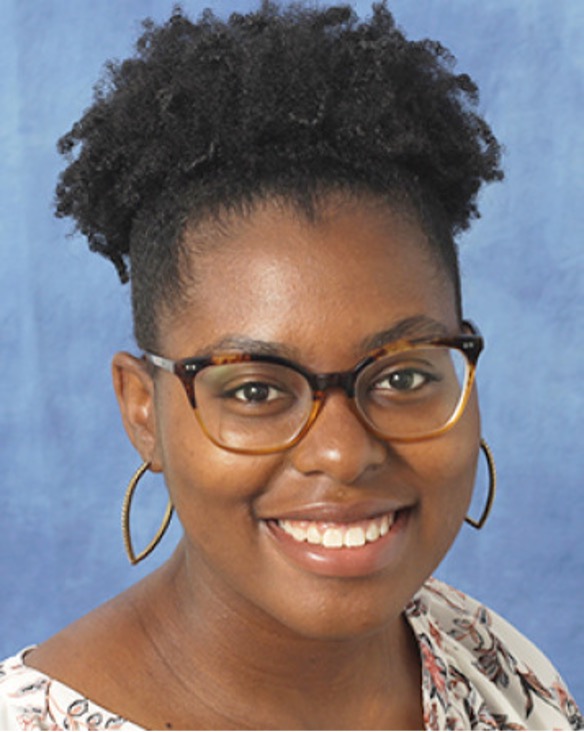Within the partnership between The Division for Planetary Sciences (DPS) of the American Astronomical Society (AAS) and the National Society of Black Physicists (NSBP), Earth and Planetary Systems Sciences (EPSS) section, we recognize Kiana McFadden as the newest DPS-NSBP Speaker Awardee. Kiana is a PhD student in planetary science at the University of Arizona, specializing in the study of small body surfaces. She is currently working with Dr. Amy Mainzer for the study of mainbelt asteroids, using images acquired by the Near-Earth Object Wide-Field Infrared Survey Explorer (NEOWISE) and Wide-Field Infrared Survey Explorer (WISE) space telescopes.
Kiana McFadden’s award-winning talk at the NSBP Fall 2023 meeting, entitled “Size and Albedo Constraints for (152830) Dinkinesh Using WISE Data,” described work that was critical for helping the NASA Lucy mission plan their November 2023 encounter with this small main-belt asteroid (as described here).
The DPS partnership with NSBP was established to jointly represent the interests of planetary
scientists and students who identify as members of communities that are critically underrepresented
in this discipline. This partnership is part of a broader effort by the DPS to facilitate the involvement
and participation of more students/scientists belonging to racial/ethnic groups that have been
historically underrepresented in the planetary science discipline.
More information on the structure of this partnership can be found here: https://dps.aas.org/leadership/nsbp_parnership and donations supporting associated travel grants can be submitted here: https://dps.aas.org/Inclusivity/support-underrepresented-minority-communities-planetary-science.
Within this DPS-NSBP partnership, the top early career EPSS speaker is selected by the NSBP EPSS
chairs, based on their presentation at the annual NSBP meeting, as the DPS-NSBP Speaker awardee.
This Speaker is invited by DPS to speak at the following year’s DPS meeting, with expenses covered
by the DPS. Furthermore, the NSBP EPSS Chairs and the DPS Committee facilitate invitation of the
Speaker to an academic seminar at an HBCU, NASA center, national laboratory, or large planetary
science university program or research institute, in the same calendar year.
DPS is thrilled to invite Kiana McFadden to speak at the 2024 DPS meeting, which will be held in
Boise, Idaho, USA and virtually. Additionally, Kiana McFadden will be speaking at the
Southwest Research Institute (SwRI), in Boulder, colloquium series this fall.
Contacts:
Dr. Carol Raymond, DPS Chair, [email protected]
Dr. Serina Diniega, DPS committee member, [email protected]
Dr. Theodore Kareta, DPS Press Officer, [email protected]
More information about DPS: https://dps.aas.org/
More information about the DPS 2024 meeting: https://dps.aas.org/meetings/future
More information about NSBP: https://nsbp.org/
Kiana McFadden’s professional website: https://www.lpl.arizona.edu/graduate/students/kiana-mcfadden
The Division for Planetary Sciences (DPS), founded in 1968, is the largest special-interest Division
of the American Astronomical Society (AAS). Members of the DPS study the bodies of our own
solar system, from planets and moons to comets and asteroids, and all other solar-system objects and
processes. With the discovery that planets exist around other stars, the DPS has expanded its scope to
include the study of extrasolar planetary systems as well.
The American Astronomical Society (AAS), established in 1899, is the major organization of
professional astronomers in North America. The mission of the AAS is to enhance and share
humanity’s scientific understanding of the universe as a diverse and inclusive astronomical
community, which it achieves through publishing, meeting organization, science advocacy, education
and outreach, and training and professional development.

